In the tradition of classical music, it is generally tried to use the same technical terms related to music in all countries. Even in the cultures in which native terms exist to refer to musical terms, usually the better known universal terms are employed.
Tag Archives: Composition
Latest posts
- Transition to Enlightenment: Six Lectures on Mozart’s String Quartets (5)
- Nasser Masoudi: The Voice of Gilan and a Legacy of Iranian Music
- Farhad Poupel: The Voice of the Shahnameh in the Orchestras Around the World
- Five Major Myths About Mozart’s Life
- Bahma Rajabi Passed Away!
- Reza Vohdani; Unveiling unpublished works, preservation of Iranian classical music
- Ahmad Pejman Passed Away!
- Timeless or Timely: The Role of Historical Context in Defining Artistic Value
- Leading the Charge in Censorship
- The Legacy of Khosrow Jafarzadeh
- Transition to Enlightenment: Six Lectures on Mozart’s String Quartets (4)
- Fereydoun Shahbazian, An Iranian Musical Icon Passed Away
From Past Days…
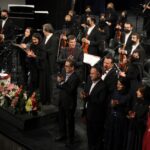
Motherland Orchestra Broke the Spell of the Covid-19 Restrictions
The Motherland Orchestra staged the first concert since the outbreak of the pandemic under the baton of Nezhat Amiri. The orchestra went on stage on December 23-24, 2021 in memory of Rouhollah Khaleghi and Golnoush Khaleghi at Vahdat Hall, Tehran, Iran. Since the pandemic outbreak, concerts were held online and restrictions were imposed on in-person concerts.
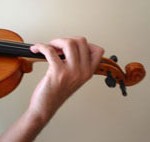
Principles of Violin Playing (VIII)
1.5.1.3.sometimes, a player, due to different reasons, may decisively want to play continuously two notes with a half-step by means of the same finger, in such a case, it’s necessary to open the interior curve of the finger like a spring. Naturally coming back, the curve of finger should be closed and the finger should become curved shape again (see paragraph 3.1.2.1).
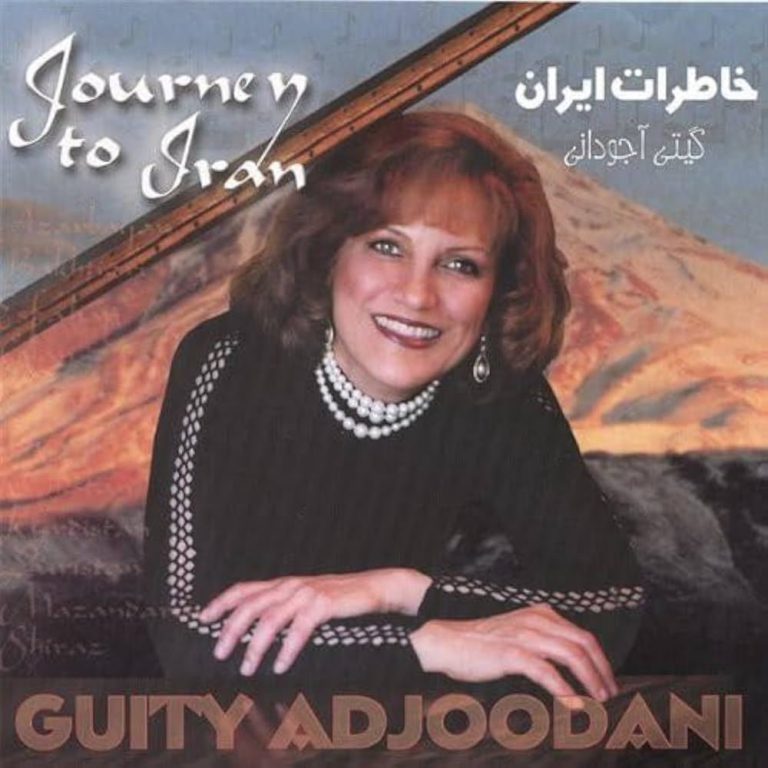
Journey to Iran Revisited: Celebrating 20 Years of Guity Adjoodani’s Return to Persian Roots
This year marks the 20th anniversary of “Journey to Iran,” an album by Iranian pianist Guity Adjoodani that has resonated with audiences worldwide. Released two decades ago, this album is a beautiful tapestry of twenty Persian folk songs, each carefully selected from the rich musical traditions of various regions in Iran. It also features four notable compositions by the esteemed Javad Maroufi (1915-1992): “Prelude,” “Jila Fantasia,” “Golden Dreams” (Khaab-haa-ye Talaayi), and “Isfahan Rhapsody.” Additionally, the album includes the beloved song “Kiss Me” (Maraa Bebous) by Majid Vafadar (1912-1975), adding depth to an already impressive collection.

The Structure of Kurdistan Daf (II)
With its simple physical structure and captivating sound, the Daf never belonged to a particular culture or location, and every nation had different usages for this instrument considering their dominant customs and traditions.

Principles of Playing Violin (V)
3/1/2/5: When the first finger lands next to the nut, continuation of first phalange of this finger, on back of the hand, should be in line with continuation of the back of the wrist and the left hand; moreover, it should not pass them and bend at knuckles. Otherwise, an uncommon stretch is created in first finger’s knuckle also reducing the freedom of other fingers (especially the fourth finger) in finger placement.

Principles of Violin Playing (VII)
4.3.1.3 Regarding the great linear distance and the unusual distance between the first and forth fingers, the first finger while playing the doubles of ninth and tenth interval, can be twisted in the knuckle area and the point mentioned in 3.1.2.5 paragraph in relation to the way first finger is placed indicating that the first joint of this finger in back of hand must be in line with the direction of forearm and left hand is not true here.
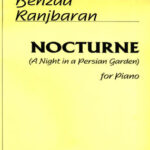
A Persian Nocturne for Piano
A Night in a Persian Garden is the name of a Nocturne composed by the Persian (Iranian) contemporary composer Behzad Ranjbaran. This Nocturne, published recently by the Theodore Presser Company in the US, was performed for the first time in 2002 in New York City by the young Persian pianist Soheil Nasseri and has enjoyed many performances by other pianists.

Iranian Fallacies – School of Vaziri
The term “School of Vaziri” is often used in writings on Iranian music, but the exact meaning of the term is not clear; some of the authors have used the term to only refer to the group of Vaziri’s students, including a large group of his conservatory students and his Tar students such as Abolhassan Saba, Rouhollah Khaleghi, Ahmad Foroutan Rad, Hossein Sanjari, Heshmat Sanjari and others. But can we consider all Vaziri’s students as followers of his school of thought? This is definitely a mistake, because we know that some of Vaziri’s students have chosen a completely different path than that of Vaziri.
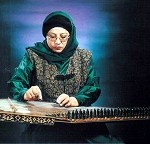
Qanun, a feminized instrument?
In the world music culture, there are instruments which were traditionally associated with a certain gender. It remains disputable to what extent these gender-based perceptions have been logical and scientific. For example, as playing wind instruments need more breath strength and the public opinion believe that men have stronger breath compared to women, these instruments are predominantly a male domain. Harp is also considered a female instrument as the public opinion believe that women have finer fingers and can therefore better perform nuances and delicate techniques on the instrument.

Transition to Enlightenment: Six Lectures on Mozart’s String Quartets (2)
Innovation and Creativity The Enlightenment era championed innovation, creativity, and the relentless pursuit of knowledge, values that resonate prominently in Mozart’s string quartets. Mozart, a luminary of the Enlightenment, used the quartet form as a playground for his inventive spirit, pushing the boundaries of traditional structures and harmonic progressions. Mozart’s innovative approach is evident in…
Read More